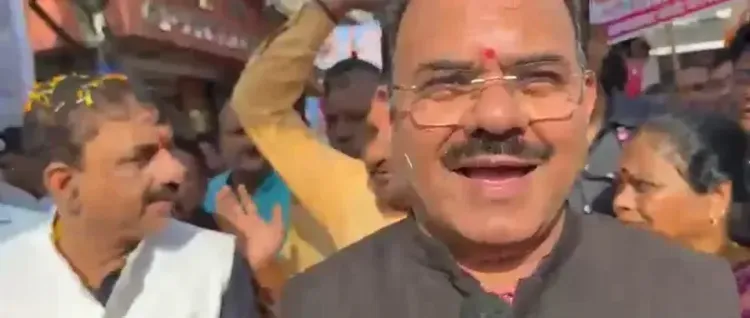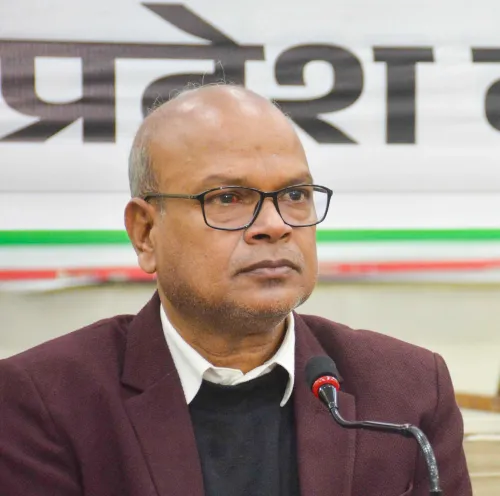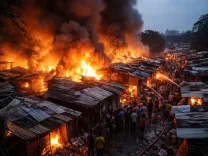Why is there a Ban on Non-Hindus at Garba Pandals During Navratri?

Synopsis
Key Takeaways
- Navratri festival begins with enthusiasm in Madhya Pradesh.
- Entry restrictions for non-Hindus at Garba pandals have sparked controversy.
- Traditional attire is emphasized for attendees.
- Garba dances are a key part of the celebrations.
- Right-wing organizations are at the forefront of enforcing these restrictions.
Bhopal, Sep 22 (NationPress) The nine-day Navratri celebration has kicked off with great zeal, as idols of Goddess Durga are being installed in neighborhoods, creating a vibrant festive atmosphere among the Hindu populace in Madhya Pradesh.
In addition to the colorful pandals showcasing various themes and forms of the goddess, Garba dances—a traditional folk dance featuring vibrant attire and small sticks—are being organized extensively.
Nevertheless, controversies surrounding Garba pandals during Navratri have emerged as a significant issue in Madhya Pradesh, particularly in major cities like Bhopal, Ujjain, Indore, Jabalpur, Gwalior, Khandwa, and Khargone.
The disputes began when numerous posters were displayed at a Garba pandal in Bhopal, explicitly stating that individuals from non-Hindu backgrounds would not be permitted entry.
Right-wing groups such as Sanskrit Bachao Manch and Bharatiya Yuva Morcha have circulated posters with contentious slogans, including “Jihadis won't be permitted in Garba pandals.”
Several leaders from the Bharatiya Janata Party (BJP), including MLAs Bhagwandas Sabnani, Rameshwar Sharma, and Bhopal MP Alok Sharma, have informed the media that access to Garba pandals will only be granted after rigorous verification of Aadhar cards and the application of tilak on participants’ foreheads.
“Those who do not adhere to Murti Pooja and Sanatan Dharma should refrain from entering Garba pandals. This celebration is exclusively for the Hindu community, and we will take strict action against any disturbances caused by ‘Jihadis’,” Bhopal MP Alok Sharma told IANS.
Rameshwar Sharma, BJP MLA from Huzur Assembly in Bhopal, emphasized that attendees should display a tilak on their foreheads, consume the goddess's prasad, don traditional dhoti-kurta attire, and ideally bring family members.
BJP officials have stated that Western attire (including backless outfits) will be prohibited at all Garba pandals, asserting that the festival must be celebrated in a fully traditional Indian manner.
Similar sentiments have been echoed by BJP leaders and right-wing members from various regions across the state.
Madhav Jha, Khandwa district convener of the Hindu Jagran Manch, stated that entry should only be allowed upon the presentation of valid identification.
“Garba is a Hindu festival, and non-Hindus should not participate,” he asserted.
Senior BJP leader and former Madhya Pradesh Culture Minister Usha Thakur voiced her support for these demands, saying, “It is crucial for our religious leaders to ensure that Garba pandals are organized only by genuine sadhaks (spiritual seekers). The trend of women and girls attending Garba events in revealing clothing is concerning. Only traditional attire should be permitted to honor the essence of the festival,” Thakur, a four-time BJP MLA from Ambedkar Nagar in Mhow, concluded.










